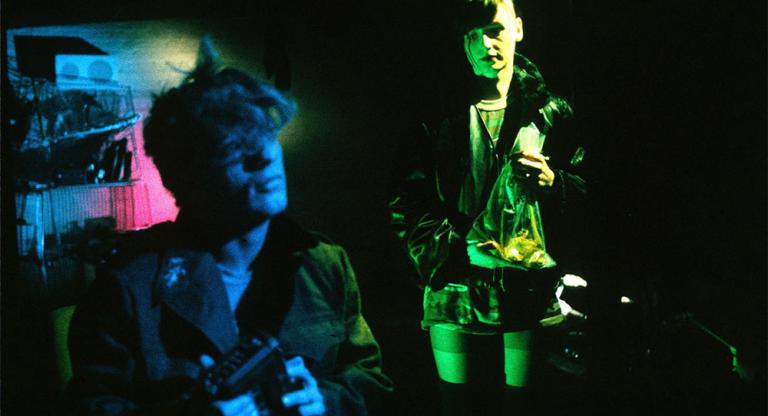As an exercise in psychological exploration, Susan Streitfeld’s 1996 Female Perversions turns out to be interesting enough to outweigh the embarrassment of its lead character — a hotshot lawyer whose desires and insecurities are meant to function as a commentary on those of her entire sex — being named “Eve.” Played by Tilda Swinton, whose deep side part and arched brows make her look like Veronica Lake if she’d been stretched out in Facetune, Eve is bisexual, successful, and unmarried, and has recently adopted a new shade of crimson lipstick called “Red Pussy.” Always, she appears to be a hair’s-breadth from exploding, in that cool, Swintonian way that tends to put her audience in mind of a fast-moving river under ice. She is sleeping with a female psychiatrist named Renee, and a long-haired geologist whose name is John, and she is also a serial fantasist, given to picturing herself as one of two things at the height of her arousal — either the helpless and titillated subject of a torrent of dehumanising, violent sexual language, or a pale-skinned living statue in the classical Greek style.
If this pairing feels like a particularly heavy-handed observation about feminine desire, it is probably because Female Perversions is adapted from a book of theory rather than from a work of fiction: Female Perversions: The Temptations of Emma Bovary, by the psychoanalyst Louise J. Kaplan. Certainly, Eve ought to be seeing a psychiatrist professionally as well as merely fucking one. Her sister, brilliant but troubled, is a kleptomaniac, describing her desire to steal and Eve’s desire for depersonalised sex as divergent, twinned expressions of a shared anxiety about their father. Classifying Streitfeld’s movie as “erotic,” as if it were something by Adrian Lyne and not a haunting 120-minute dissertation on womanhood as performance, seems misguided. More accurate would be to describe it as a pitch-black satire in which the target is the culture that sells a lipstick called “Red Pussy” in the first place.
Eve is all about achievement, excellence, and competition, making it entirely logical that she would want to be as good at being a woman as she is at doing her job. Femininity, a burlesque dancer tells her, is not “something that comes naturally. You have to work at it. You have to practice every day. You’ve gotta become, like, generic.” The only thing funnier than the idea of Tilda Swinton being generic is the moment in which Eve’s boss, flummoxed by the revelation that she has no husband and no children, nervously offers a rationalisation: “I suppose living alone gives you more time to read, right?”
Female Perversions is available to rent on most platforms.




